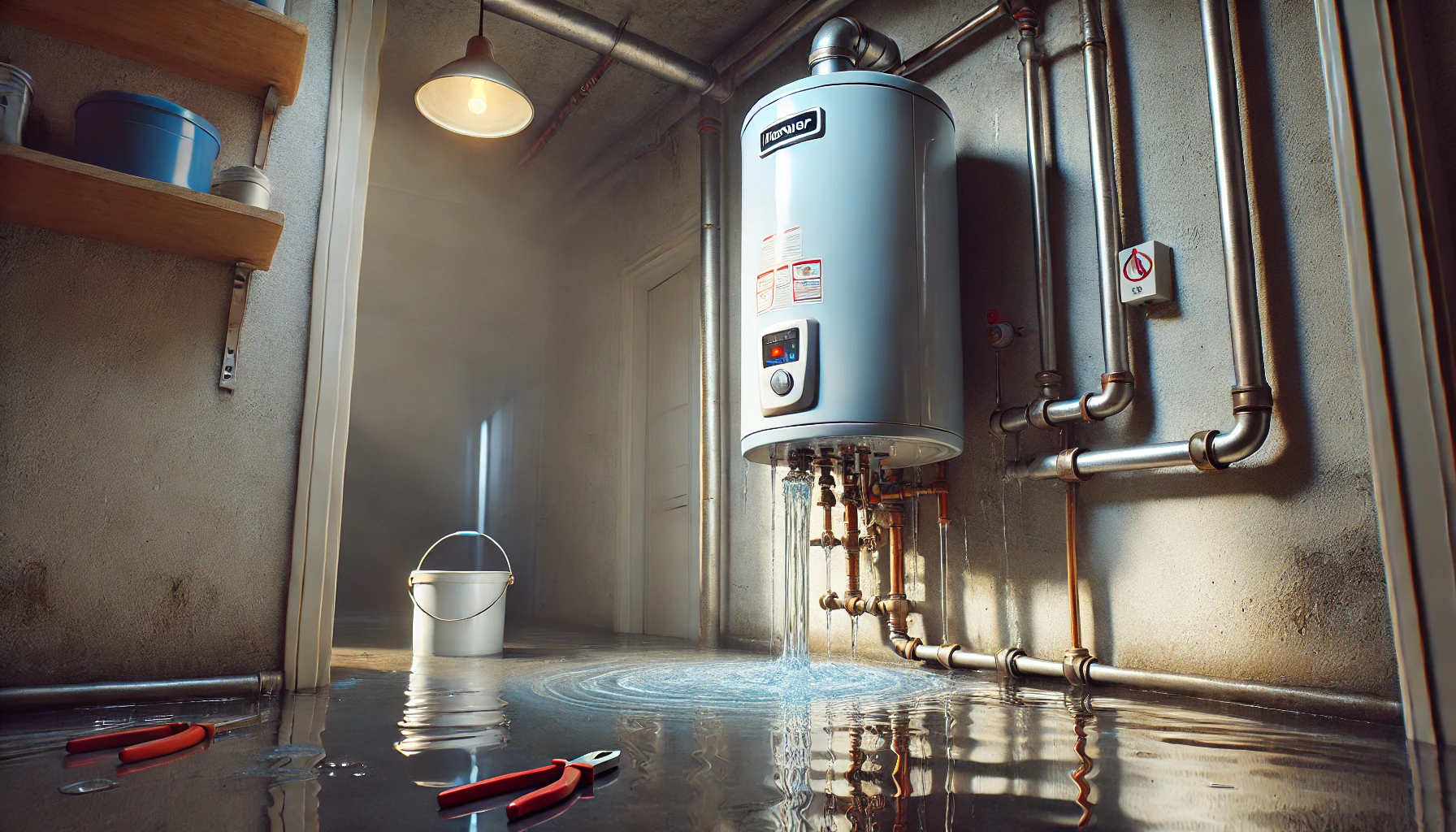Gas water heaters are a common household appliance, providing warm water for various purposes. However, like any device, they can experience problems over time. One of the most alarming issues is a gas water heater leaking, which can be both dangerous and frustrating. In this article, we will explore common signs of gas water heater leaking, what causes them, and how to handle such situations effectively.
Understanding Gas Water Heater Leaks
A gas water heater leaking can refer to several different issues. It might involve water leaking from the unit or gas escaping from the system. Both situations pose risks to safety, as gas leaks can lead to fires or explosions, and water leaks can damage your home.
What Causes a Gas Water Heater to Leak?
- Wear and Tear
Over time, components in the water heater can degrade. The tank or pipes might corrode, causing gas water heater leaking from bottom or gas water heater leaking water from bottom. - Faulty Connections
A loose or damaged gas connection could lead to a gas leak from water heater. If gas is escaping, it’s critical to address the issue immediately to avoid any hazards. - Pressure Build-up
If the water heater’s temperature or pressure settings are too high, it can cause excess pressure, resulting in leaks. Gas hot water heater leaking water is often a sign of such pressure issues. - Corroded Valves
Corrosion around valves can lead to water leakage. A gas water heater leaking from top is often a result of corroded or damaged valves.
Common Signs of a Gas Leak in Water Heaters
If you suspect a gas water heater gas leak, it’s important to recognize the signs early. Ignoring a gas leak can be dangerous. Some common symptoms include:
- The Smell of Gas
A strong odor around your water heater could indicate a water heater gas leak smell. Gas companies often add a sulfuric smell to natural gas, so it’s easy to detect a leak. - Hissing or Bubbling Sounds
If you hear hissing noises or bubbling sounds near your water heater, it could indicate a gas hot water heater leaking. - Damaged Pilot Light
If the pilot light goes out frequently or has an unusual color, it could be due to a gas leak in your water heater. - Gas Water Heater Leaking Water
If you notice water pooling around the base of your heater, it could be a sign that there is an issue with the tank or plumbing. If there is also a smell of gas, it’s likely a gas leak from water heater.
Can a Water Heater Leak Gas?
Yes, a water heater leaking gas is possible and highly dangerous. Gas leak water heater issues can arise from a variety of sources, including faulty connections, damaged pipes, or improper installation. Gas leaks often occur when the gas valve, pipe, or fittings are compromised. If you notice any signs of a gas leak, you should take immediate action.
How to Respond if Your Gas Water Heater is Leaking
- Turn Off the Gas Supply
If you suspect a gas water heater gas leak, the first step is to turn off the gas supply to your water heater. This will help prevent any further gas from escaping and reduce the risk of a fire. - Ventilate the Area
Ventilate the area by opening windows and doors to let fresh air circulate. This will help dissipate any gas in the area. Avoid creating any sparks, such as turning on lights or using electrical devices, as they could ignite the gas. - Check for Leaks
Inspect the area around your water heater for visible signs of a leak. A gas water heater leaking from bottom may indicate a damaged valve or faulty connection. Gas water heater leaking water from bottom can result from a broken seal or corroded tank. - Contact a Professional
If you’re unsure of how to stop the leak, it’s essential to call a professional plumber or gas technician. Repairing gas water heater leaks requires expertise to ensure that all connections are safe and properly sealed.
Troubleshooting Gas Water Heater Leaks
Here are a few common causes of gas water heater leaking issues and how to troubleshoot them:
1. Gas Water Heater Leaking from Bottom
A gas water heater leaking from bottom could be a sign of internal corrosion. The metal tank may have rusted or developed holes due to prolonged exposure to water. If you find water pooling around the base of the heater, this could be the cause.
- Solution: If the tank is corroded, replacing the water heater might be necessary. Regular maintenance, such as draining the tank, can help prevent this.
2. Gas Water Heater Leaking from Top
If water is leaking from the top of your water heater, it could be due to a faulty valve or connection. Gas water heater leaking from top often results from a worn-out T&P valve (temperature and pressure relief valve).
- Solution: Tighten the valve connection or replace the valve if necessary.
3. Water Heater Smells Like Gas But No Leak
Sometimes, you might detect a water heater gas leak smell but cannot find a leak. This could be due to a buildup of gas in the area or a minor leak that is difficult to detect.
- Solution: Always inspect the area carefully. If you can’t find the source, it’s best to call a professional to check for leaks and ensure the gas connections are safe.
4. Gas Leak from Water Heater
If you suspect a gas leak water heater, it’s crucial not to ignore the problem. Gas leaks can be subtle but highly dangerous. You might smell gas or notice an issue with the pilot light.
- Solution: Turn off the gas supply immediately, and contact a licensed professional. Do not attempt to repair a gas leak on your own.
How to Prevent Gas Water Heater Leaks
Preventing leaks is always better than dealing with them after they happen. Here are a few tips to reduce the risk of gas water heater leaking:
- Regular Maintenance
Schedule annual inspections for your water heater. A technician can check for signs of corrosion, faulty valves, or damaged pipes. - Check for Rust
Periodically check for any rust around the tank. If you notice any rust, it may indicate the tank is compromised and may need replacing. - Monitor Pressure
Keep an eye on the pressure and temperature settings of your water heater. High pressure can cause leaks or even tank failure. The temperature should be set at around 120°F for optimal performance. - Install a Gas Leak Detector
Consider installing a gas leak detector near your water heater. These devices can help you identify gas leaks early before they become a serious issue.
A gas water heater leaking can be a cause for concern. Whether the issue involves gas water heater leaking from bottom, a gas water heater leaking from top, or a potential gas leak from water heater, it’s important to take swift action. Always turn off the gas supply, ventilate the area, and call a professional plumber if you suspect a leak. Regular maintenance and monitoring can help prevent future leaks and ensure your gas water heater operates safely and efficiently.
If you ever smell gas or suspect a leak, remember that safety comes first. Don’t hesitate to get professional help to resolve the issue.
Also Read: Do Plumbers Install and Repair Gas Lines? Know Everything

